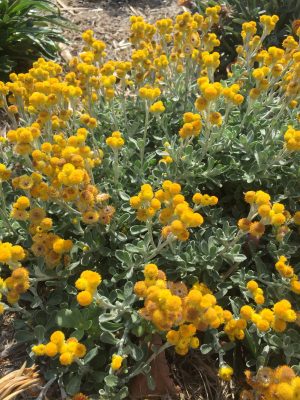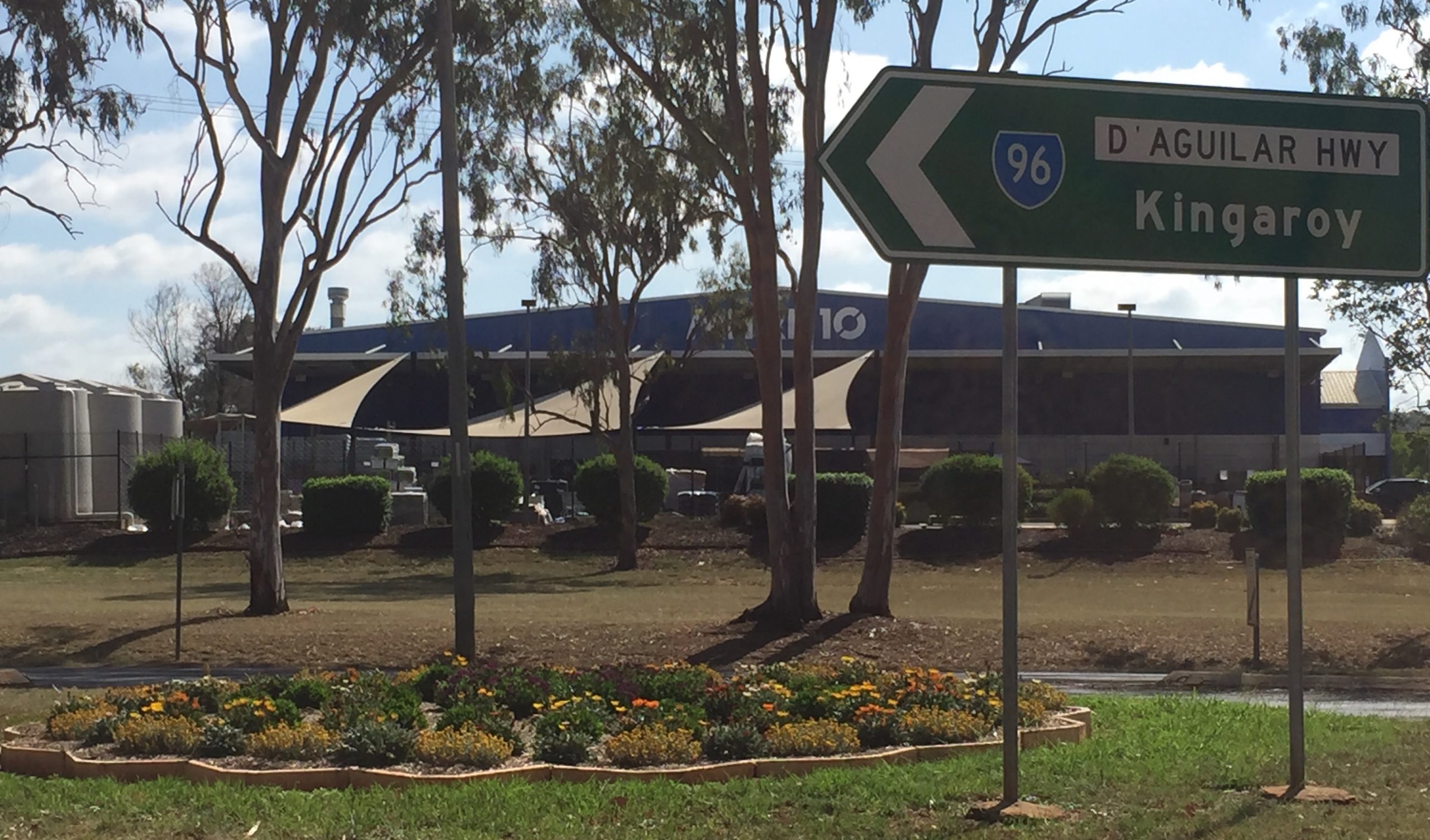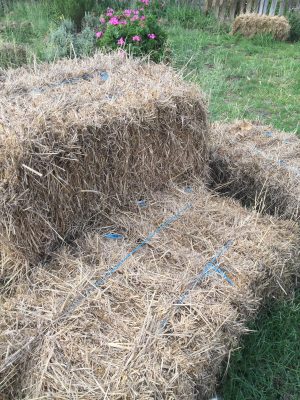
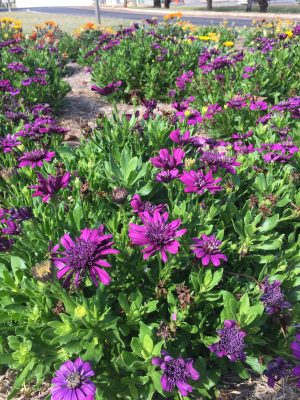
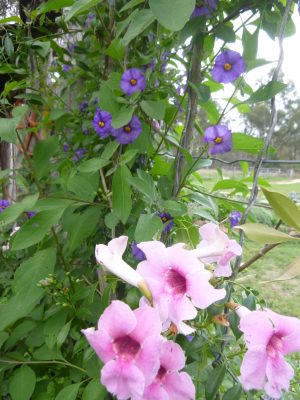
Over the last few weeks we’ve all felt the heat creeping in. While there are a few things we can do for our gardens hot weather can certainly be hard on our plants. Even with enough water and mulch, plants can suffer when the temperatures rise, however we can limit this occurrence during the hottest part of the summer. We are all aware that watering in the morning or early evening is best for our gardens as watering during the day will just cause evaporation before it gets to the roots. Ideally deep watering two or three times a week is best and using a drip irrigation system or a soaker hose uses water efficiently. Like myself, if you do not have an irrigation system and instead water by hand then heavily mulching will work well too. Also be aware of any current watering restrictions or your self limited water supplies. A couple of days ago we delivered some plants and had conversations about the hope of rain and how having a limited water supply makes gardening a challenge. We seem to be always crossing our fingers for rain. Thankfully our last fall of 33mm was very exciting as we had missed out on some of the previous falls.
Thickly laying mulch helps insulate the plants roots from both cold and heat. My preferred mulch year after year is spoilt hay as it is readily available and helps keep some moisture in the soil. Around 15cm thick seems to be enough to do the trick and yet light enough to let any rain through. Duboisia chip, hay, straw, sugar cane mulch, leaves and grass clippings make good, inexpensive mulch and your plants will love you for it. Consideration about which types of plants are able to cope with the harsh seasons of cold and heat will help you love your garden throughout the year. I find trees for shade, hardy shrubs, native flowers as well as plants native to South Africa grow very well here. Also agapanthus, pandorea vine, solanum, society garlic and citrus. This morning I photographed a lovely planting of African daisies, native yellow buttons and gazania adorning the traffic island opposite Mitre 10 in Kingaroy. These plants should cope really well over the summer and have a general tolerance to the heat. While enjoying time spent in the garden in the morning and evening, taking regular breaks is really important for our own well being. Like our plants, be sure to stay hydrated too. Taking a few precautions this summer will help us and our gardens to stay healthy and cool and the summer season will change again before we know it. So until next time “Happy Gardening” Romaine
All pictures by Romaine Undery
- Image 1 – My preferred mulch year after year is spoilt hay as it is readily available and helps keep some moisture in the soil.
- Images 2,3 and 4 – Smart plantings of African daisies, native yellow buttons and gazania adorn the traffic island opposite Mitre 10 in Kingaroy
- Image 5 – Solanum and Native Pandorea Vine scramble over a wire fence in my back garden coping with the summer heat.
